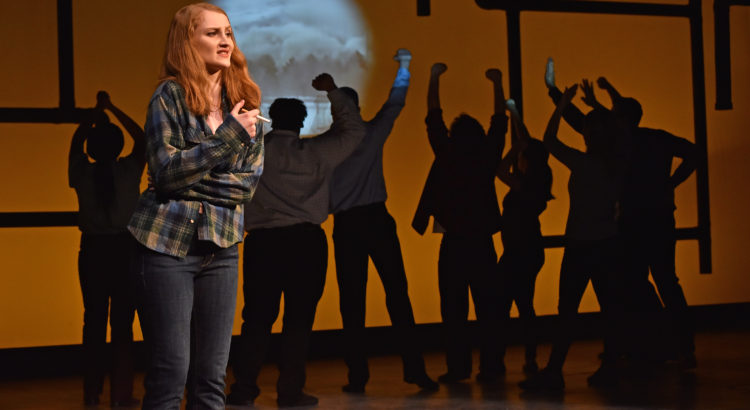Let me start off by saying that I am from Flint, Michigan. I was born and raised in the city and had lived there my entire life until I came to Ann Arbor. When the water crisis started I was in my junior year of high school and we knew something was wrong but had no idea of the magnitude and the problems to come. I still call Flint home and go there often to visit family and the community I love. First semester freshman year in college is hard enough as it is but my experience was made even more complicated when the water crisis broke international news. Suddenly it was my hometown in the news, spread across my facebook news feed, and as the subject of conversation everywhere. When people found out where I was from they would ask in horror how my family was, as if my city had survived the latest natural disaster. Many people, with both good and not so pure intentions, were focused on producing media around the issue and holding fundraisers. It often felt like my hometown was being sensationalized as a pitiable, suffering place. I have become incredibly cynical about outside activism centered around my city and our crisis due to these experiences; that is why I was very skeptical when I first learned about FLINT being produced on our campus.
In spite of my skepticism, FLINT blew me away. I am still processing the weight of the production. A couple scenes from the play really stuck with me as they resonated with my experiences or taught me something new. In the first half of the play one scene depicted a conversation of Umich students and faculty from Flint discussing their complicated relationships with the city. They spoke truths that I have been mulling over since I came to Ann Arbor, the fact that we identify as being from Flint, call it our home, but also acknowledge our privilege as members of the Umich community here. Another scene that stuck with me was the nurse character’s perspective as a health professional in this health crisis. While her impressions of the crisis itself were powerful, the part that really got to me was when she said exactly what I’ve been saying and feeling for years; things were bad before the water crisis, and no one cared about us then. Though the water crisis has shook my community, we were struggling long before it due to a government which does not care about poor, rustbelt, communities of color. We were abandoned long ago, making the water crisis almost inevitable. What I was not necessarily expecting was to learn about my city and its experience with this crisis. Flint is home to the Michigan School for the Deaf, but I was completely shocked by the scene detailing the experience of the daughter of deaf parents. I never thought about the role this sub-group plays in my community and the different ways it affected them.
Another unexpected experience that I had watching this play was nostalgia. I did not know any of the characters represented in this play, but they felt familiar. I recognized the traits that Flint instills in a person and the places which they occupied. Pictures taken in everyone’s favorite diner, Starlite; a prom scene set in Northwestern high school the spring before the school closed. I knew it was a play about my hometown when I could single out the places and experiences they described in the most vague of terms. I know better than anything not to go in the Flint River, I remember when they found a dead, frozen body in it one winter. The new, exciting bookstore opened downtown is called Totem Books and I’ve passed it in the car a million times, heard all the buzz surrounding it with little recognition for Black-owned bookstores in other parts of the city. I’m worried about the gentrification I’ve spent my life watching expand through the downtown area, just like that barber. This play didn’t include my narrative, but it was about me, my family, my community, and my hometown.
Picture courtesy of SMTD.


